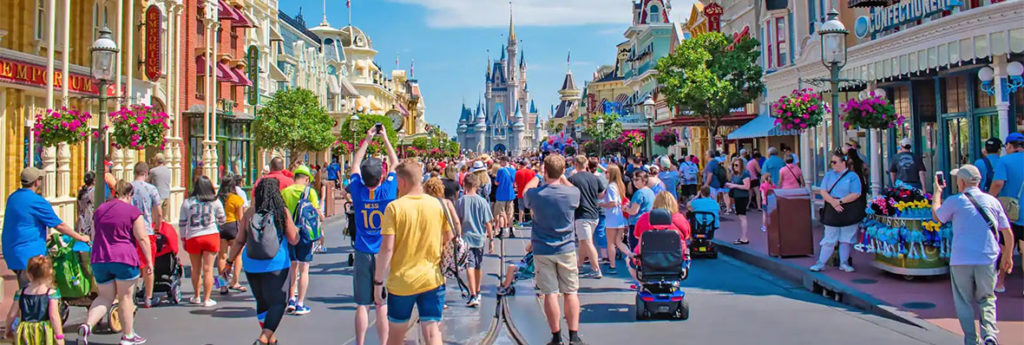As Florida’s busy spring break season kicked off this month, coronavirus ‘czar’ Vice-President Mike Pence addressed the concern for safety that has been on the minds of families preparing to travel to theme parks. Over the weekend, he stressed it is safe for healthy Americans to travel. “Whether it be Disney World, whether it be other destination, whether it be cruise ships, those most at risk are seniors with serious or chronic underlying health conditions.”
“Otherwise Americans can confidently travel in this country,” Pence said at a meeting with cruise industry officials in Fort Lauderdale on Saturday.
Still, as COVID-19 concerns multiply, the issue weighs heavily in the tourism industry.
“There is definitely concern. Particularly how and when it could manifest itself in the US,” said Dennis Speigel, president of International Theme Park Services Inc., an independent industry consultant.
He’s been watching the spread of the coronavirus for weeks, as theme parks in Asia have closed. He estimated the temporary closure of Disney parks in Shanghai and Hong Kong will cost the company anywhere from $175 million to $300 million dollars.
Coronavirus concerns have impacted the state’s cruise industry and convention business, but the theme parks have been spared so far, although that could change at any moment.
Orlando is the nation’s most visited tourist destination, bringing vast numbers of people from around the globe to its major theme parks, which also include Universal Orlando and SeaWorld Orlando. The city attracted 75 million visitors in 2018.
As of Sunday, the city was at least 65 miles (105 km) from the nearest person testing positive for coronavirus.
Though several conventions in Orlando have been cancelled because of concerns, individual leisure travel hasn’t been affected, local officials said.
The state draws hordes of college-age students and families with grade-school children during the spring break season, which begins in earnest in mid-March and runs into April. Cancellations could be devastating during one of the busiest times of the year in the Sunshine State.
Last week, five big conventions said they were cancelling their conferences in Orlando because of coronavirus concerns. Over the weekend, the Centers for Disease Control and Prevention recommended that travellers defer all cruise travel, especially if they have underlying health issues.
The US Travel Association predicted a percent decline in international visitors to the US over the next three months as a result of coronavirus. If the prediction holds, it would be the largest decline in international inbound travel since the recession a dozen years ago, the association said.
If a Disney visitor shows coronavirus symptoms or first responders think they have the flu, both patient and paramedic will get a face mask, said Tim Stromsnes, president of the union local for firefighters at Disney World.
Speigel said parks and attractions likely will undergo “a lot of fumigation, disinfection, right now, not only in the front of the house, but the back of the house.”
Disney officials said in a statement that extra hand sanitizers were being placed throughout its four parks and more than two dozen hotels.
Tom Schroder, a spokesman for Universal Orlando, said it is reinforcing “best-practice health and hygiene procedures” in response to the coronavirus outbreak and adding more hand sanitizer units to its parks.
“We will continue to closely monitor the situation and be ready to act as needed,” he said.
Spiegel added that at many parks, deliveries will be scrutinized and workers will be retrained on cleanliness procedures. Parks may also restrict employee travel to higher-risk countries such as China, Italy and South Korea – a measure Legoland has already taken.
Mixed messages
Earlier Monday, Florida officials walked back an earlier advisory requesting all travellers returning from foreign countries self-isolate, further sowing confusion over its efforts to contain a fast-spreading threat to public health.
An earlier statement from the Florida Health Department had advised all individuals travelling internationally to self-isolate for 14 days.
Two hours later, health officials revised its advisory to realign with federal health guidelines that require travellers returning from the high-risk countries — China, South Korea, Italy and Iran — to remain home and avoid contact with others.
It was unclear what led to the communications breakdown, when the Health Department seemed to take the unprecedented step Monday of asking all travellers to self-isolate for 14 days after returning from any foreign travel. A spokesman could did not immediately return phone calls.

